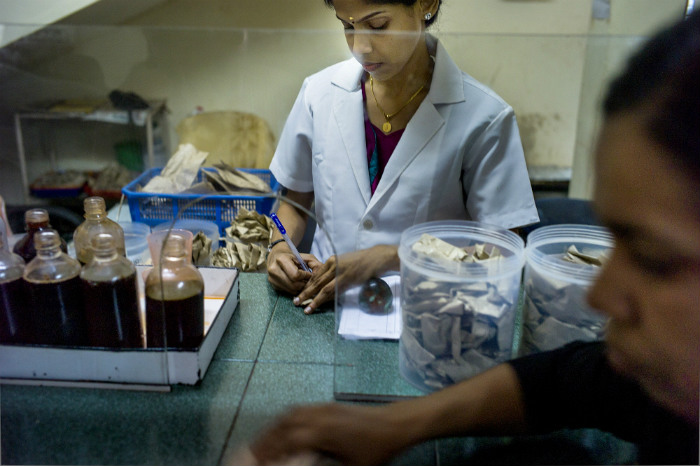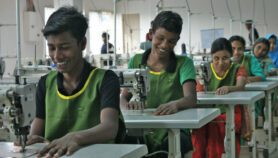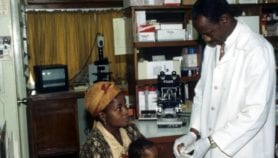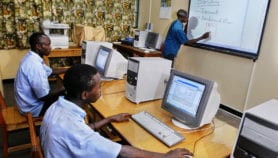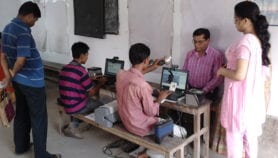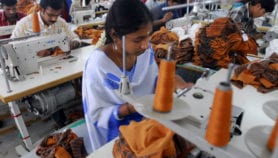By: Alan Leroux
Send to a friend
The details you provide on this page will not be used to send unsolicited email, and will not be sold to a 3rd party. See privacy policy.
India’s experience shows a wider notion of vulnerability is needed to protect human rights, says Alan Leroux.
In 2013, the approval of new clinical trials in India came close to a halt after a ruling by the Indian Supreme Court and new, tougher regulations — both responding to unethical practices in trials over previous years.
Things now seem set to change. Following industry predictions that clinical trial activity may again increase, the government has stated its intention to rewrite the rules entirely, with reported objectives including “to facilitate the ease of doing business”. And the research community has called for the government to permit types of research not previously used in the country, including first-in-human trials in healthy volunteers.
But India’s experience offers wider lessons relating to the vulnerability of poor and marginalised people recruited in clinical trials. That experience illustrates why vulnerability needs to be recognised as more than a characteristic of particular groups, but as something common to everyone that merits stronger protection of rights. And this ought to be central to our thinking on health, research and justice.
Open trial access
First, some history.
When India relaxed its regulations in 2005 to allow companies to run clinical trials without first running trials abroad, large numbers of patients were recruited to test experimental drugs. Many came from poor backgrounds and had few healthcare options. Eight years later, following reports of unethical conduct, the Supreme Court stopped new trials until a “mechanism is put in place to monitor them”. After tougher regulations were introduced, the number of trials dropped significantly.
Reported injustices included enrolling patients into trials without their consent, and “disturbing” levels of injury and death. In its decision, the court questioned why many of those harmed received no compensation.
The ruling came after NGOs launched a lawsuit against the Indian government — it would have been much harder for patients to enforce their rights directly against the companies involved. [1] Besides a huge imbalance in financial resources between patients (and even civil society groups) and the corporations, these companies are often located in different legal jurisdictions, usually in the developed world.
“Adopting a wider notion of vulnerability into national and international law would translate into concrete ways of improving pathways to justice for individuals, particularly in the developing world. And it would improve corporate accountability for human rights.”
Alan Leroux
From a legal standpoint, it is difficult to allocate responsibility where complex corporate groups are involved, or when those funding drug trials outsource management of their trials to other companies. Adding to these problems is a lack of case law setting out a sponsor’s precise duties.
The odds are stacked against patients in scientific terms too: proving that an already ill patient was harmed by a drug (or the experimental design used to test it) is a highly technical matter in which sponsors hold much of the expertise and evidence.
Shared vulnerability
These imbalances capture an aspect of vulnerability that has not been widely acknowledged. Vulnerability tends to be viewed as a characteristic of certain groups, such as the old, sick or young, or as a state caused by social, economic or cultural factors. But too narrow a definition misses more widespread vulnerabilities: those reflected in how clinical research and legal systems currently function — and even more fundamental aspects of vulnerability.
In 2005, the year India opened up to the clinical trial industry, UNESCO (UN Educational, Scientific and Cultural Organization) adopted its Universal Declaration on Bioethics and Human Rights. This includes, at Article 8, a requirement to take human vulnerability into account in applying and advancing medical practice and scientific knowledge. The declaration was adopted by almost 200 UNESCO member states, including India, the United Kingdom and the United States — all powerful voices in any international matter.
Then, in 2013, the year India’s Supreme Court acted on clinical trials, UNESCO’s International Bioethics Committee published a report that placed human vulnerability and personal integrity at the very centre of thought regarding trials, even human experience. [2]
It says: “The human condition implies vulnerability. Every human being is exposed to the permanent risk of suffering ‘wounds’ to their physical and mental integrity. Vulnerability is an inescapable dimension of the life of individuals and the shaping of human relationships.”
Clearly, this notion of vulnerability extends beyond a group characteristic or a state imposed by external forces. We are all capable of being wounded. From this point of view, our common vulnerability has the power to unite our sympathies instead of marking differences.
Progress on rights
The International Bioethics Committee report also says: “Vulnerability is caused or exacerbated by a lack of means and of the capacity to protect oneself.” This is a point everyone can appreciate: rights are like empty promises without the means to protect them.
What does this mean for clinical trials in India and for drug development? It was hoped that India’s policy of opening up access to trials would improve health standards by attracting investment into the healthcare sector. This was not the case. Instead, many of those recruited had little means of enforcing their rights and in many cases those rights were abused.
The country has made improvements in recent years. For example, government bodies, rather than investigating doctors hired by pharmaceutical companies, now decide whether experimental treatments have harmed patients.
Strengthened regulations will help, but we should remember that many protective laws were already in place before the Supreme Court ruling. India’s authorities seemed to have “slipped into deep slumber” over the issue, and here lies the larger problem: a reliance on bureaucratic vigilance and laws that focus on procedures is no substitute for effective, enforceable rights.
Some in the clinical research industry assumed that compensation claims would be as effective “as elsewhere in the world” — yet the very poverty of the population that made India so attractive to research organisations should have suggested otherwise. [3]
Adopting a wider notion of vulnerability into national and international law would translate into concrete ways of improving pathways to justice for individuals, particularly in the developing world. And it would improve corporate accountability for human rights. [4]
Developed countries can also choose to promote, rather than ignore, access to justice beyond their borders in more subtle ways. They are home to most drugs companies, constitute their principal markets and can decide whether or not to accept experimental data derived from trials in India and other countries where access to trials is not matched by access to justice.
The broader concept of vulnerability suggests that we should all be concerned when individuals cannot take action to defend themselves. Not only does a well-functioning justice system provide compensation to the injured, it exposes and rectifies bad practice, to everyone’s benefit.
Alan Leroux is a lawyer who has worked within the clinical trial industry. Before training in law, he was a laboratory researcher in the pharmaceutical industry and academia. He can be reached at [email protected]
References
[1] Clinical trials in developing countries: how to protect people against unethical practices? (Directorate-General for External Policies of the Union, 2009)
[2] International Bioethics Committee The principle of respect for human vulnerability and personal integrity (UNESCO, 2013)
[3] Shoibal Mukherjee Compensation conundrum (Perspectives in Clinical Research, 2012)
[4] Guiding principles on business and human rights (UN, 2011)


